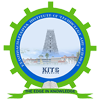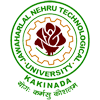ANTI RAGGING
ANTI RAGGING
As per the notification in regard to prevention and prohibition of ragging in the University and AICTE act, the committee has been constituted to prohibit, prevent and eliminate the scourge of ragging including any conduct by any student or students whether by words spoken or written or by an act which has the effect of teasing, treating or handling with rudeness a fresher or any other student, or indulging in unfair means or undisciplined activities by any student or students which causes or is likely to cause annoyance, hardship or psychological harm or to raise fear or apprehension. Thereof in any fresher or any other student or asking any student to do any act which such student will not in the ordinary course do and which has the effect of causing or generating a sense of shame, or torment or embarrassment so as to adversely affect the physique or psyche of such fresher or any other student, with or without an intent to derive a sadistic pleasure or showing off power, authority or superiority by a student over any fresher or any other student, in all higher education institutions in the country, and thereby, to provide for the healthy development, physically and psychologically, to all students. To achieve these objectives the committee has been constituted.
Anti-Ragging Committee responsible for inculcating Culture of Ragging Free Environment in the Campus. The Anti-Ragging Squad office bearers will work under the supervision of Anti Ragging Committee and to engage in the works of checking places like Hostels, Buses, Canteens, Classrooms and other places of student congregation. Anti-Ragging Committee will be involved in designing strategies and action plan for curbing the Menace of Ragging in the college by adopting array of activities. The Committee also would conduct awareness programmes from time-to-time in the campus.
Anti-Ragging Committee to ensure compliance with the provisions of Regulations as well as the provisions of any law for the time being in force concerning ragging; and also, to monitor and oversee the performance of the Anti-Ragging Squad in prevention of ragging in the institution. As per the order of Supreme Court of India and subsequent Notification from AICTE, ragging constitutes one or more of any intention by any student or group of students on:
- Any act of Indiscipline, Teasing or Handling with Rudeness.
- Any act that Prevents, Disrupts the Regular Academic Activity.
- Any activity which is likely to cause Annoyance, hardship, Psychological Harm or creates Fear or Apprehension.
- Any Act of Financial Extortion or Forceful to Health.
- Any Act of Physical Abuse causing Assault, Harm or danger to Health.
- Any Act of abuse by spoken words, emails, SMS or public insult etc.
- Any Act of Wrongful Confinement, Kidnapping, molesting or committing unnatural offences, use of criminal forces, trespass or intimidation.
- Any unlawful assembly or conspiracy to ragging.
The All India Council For Technical Education (AICTE), New Delhi vide its Notification no. 37- 3/Legal/AICTE/2009 dated 25-03-2009 has taken a very serious view of ragging incidences in educational institutions and on Directions of the Hon’ble Supreme Court of India vide its Order dated 16.5.2007 has ordered strict implementation of following rules & regulations for Prevention and prohibition of Ragging in technical Institutions.
The Hon’ble Supreme Court has, inter-alia, mentioned the following types of ragging:-
- Ragging has several aspects with, among others, psychological, social, political, economic, cultural, and academic
- Any act that prevents, disrupts or disturbs the regular academic activity of a student should be considered within the academics related aspect of ragging; similarly, exploiting the services of a junior student for completing the academic tasks assigned to an individual or a group of seniors is also an aspect of academics related ragging prevalent in many institutions, particularly in the technical institutions.
- Any act of financial extortion or forceful expenditure burden put on a junior student by senior students should be considered an aspect of ragging for ragging economic
- Any act of physical abuse including all variants of it: sexual abuse, homosexual assaults, stripping, forcing obscene and lewd acts, gestured, causing bodily harm or any other danger to health or person can be put in the category of ragging with criminal
- Any act or abuse by spoken words, emails, snail-mails, blogs, public insults should be considered within the psychological aspects of This aspect would also include deriving perverted pleasure, vicarious or sadistic thrill from actively or passively participating in the discomfiture to others; the absence of preparing ‘freshers’ in the run up to their admission to higher education and life in hostels also can be ascribed as a psychological aspect of ragging – coping skills in interaction with seniors or strangers can be imparted by parents as well. Any act that affects the mental health and self-confidence of students also can be described in terms of the psychological aspects of ragging.
- The human rights perspective of ragging involves the injury caused to the fundamental right to human dignity through humiliation heaped on junior students by seniors; often resulting in the extreme step of suicide by the
- The punishment to be meted out to the persons indulged in ragging has to be exemplary and justifiably harsh to act as a deterrent against recurrence of such incidents. The students who are found to be indulged in ragging should be debarred from taking admission in any technical institution in
- Every single incident of ragging a First Information Report (FIR) must be filed without exception by the institutional authorities with the local police
- Depending upon the nature and gravity of the offence as established by the Anti-Ragging Committee of the institution, the possible punishments for those found guilty of ragging at the institution level shall be any one or any combination of the
- Cancellation of admission
- Suspension from attending classes
- Withholding/withdrawing scholarship/fellowship and other benefits
- Debarring from appearing in any test/examination or other evaluation process
- Withholding results
- Debarring from representing the institution in any regional, national or international meet, tournament, youth festival, etc.
- Suspension/expulsion from the hostel
- Rustication from the institution for period ranging from 1 to 4 semesters
- Expulsion from the institution and consequent debarring from admission to any other institution
- Fine of Rupees 25,000/-
- Collective punishment: when the persons committing or abetting the crime of ragging are not identified, the institution shall resort to collective punishment as a deterrent to ensure community pressure on the potential
- The institutional authority shall intimate the incidents of ragging occurred in their premises along with actions taken to the Council immediately after occurrence of such incident and inform the status of the case from time to
- Courts should make an effort to ensure that cases involving ragging are taken up on priority basis to send the correct message that ragging is not only to be discouraged but also to be dealt with sternness.
Anti-Ragging Squad will be working under the Monitoring of Anti Ragging Committee and will seek advice from the Anti-Ragging Committee. The functions of Anti-Ragging Squad will be to keep a vigil and stop the incidences of Ragging, if any, happening / reported in the places of Student aggregation including, Classrooms, Canteens, Buses, Grounds, Hostels etc. The Squad will also educate the students at large by adopting various means about the menace of Ragging and related Punishments there to. A gamut of positive reinforcement activities are adopted by Anti-Ragging Squad for orienting students and molding their personality for a better cause. They shall work in Consonance and Guidance of Anti Ragging Committee.
S.No | NAME OF THE STAFF | DESIGNATION | STATUS | PHONE NO.. |
1. | Dr. V.KRISHNA REDDY | PRINCIPAL | CHAIRMAN | 9153019999 |
2. | Mr.P. RAMA MOHAN | HOD OF H&S | COORDINATOR | 9700954741 |
3. | Dr.A.RANGANAYAKULU | VICE PRINCIPAL & HOD OF ECE | CO-COORDINATOR | 6281311010 |
4. | Dr.J.V.ANIL KUMAR | HOD OF CSE | CO-COORDINATOR | 7396798054 |
5. | Mr.P. V. ANIL KUMAR | HOD OF MECH | MEMBER | 9885617577 |
6. | Mr.K. RAMUDU | HOD OF CIVIL | MEMBER | 9652264644 |
7. | Mrs.A.AMRUTHA VALLI | HOD OF AI&ML | MEMBER | 9948791055 |
8. | Mr.A. PRASAD | ASSOC. PROFESSOR-ECE | MEMBER | 8501870777 |
9. | Mrs.CH.SRAVANII | ASST. PROFESSOR -H&S | MEMBER | 8096581542 |
10. | Mr.B.RAJU. | ASST. PROFESSOR -EEE | MEMBER | 6302142558 |
11. | Mrs.D.VIJAYA BHARATHI | WARDEN GIRLS HOSTEL | MEMBER | 9502768550 |
12. | Mr.G.NANDULU | WARDEN BOYS HOSTEL | MEMBER | 6305924277 |
13. | Mr.ADIGOPULA SASANKH | STUDENT | MEMBER | ———– |
14. | Ms.N.KARISHMA BI | STUDENT | MEMBER | ———– |
15. | Ms.SYED NAZIYA | STUDENT | MEMBER | ———– |
16. | Mr.Y. NAJARAYUDU | STUDENT | MEMBER | ———– |



